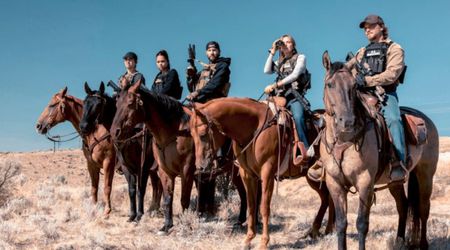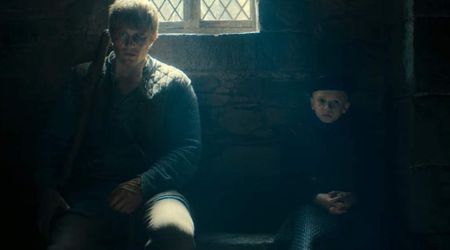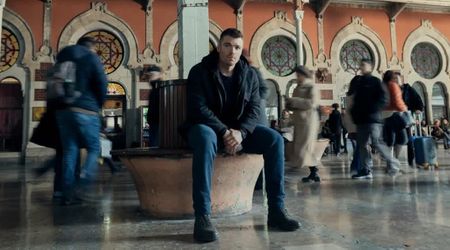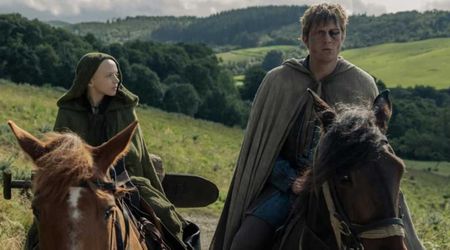'Crip Camp': Enchanting soundtrack enhances Netflix documentary's riveting take on disability rights movement

Spoilers for 'Crip Camp'
'Crip Camp' is a fascinating documentary that traces the movement for equality in a fight waged by the disabled community in the US. The soundtrack for 'Crip Camp' is a beautifully curated series of tracks that perfectly capture the social and political themes of the time, in addition to being a list of some of the best songs of the 60s and 70s. It really brings the spirit of Woodstock right to your doorstep.
‘For What It’s Worth’ by Buffalo Springfield
"I wanted to be part of the world, but I didn’t see anyone like me in it," says Jim LeBrecht, one of the directors and producers of the film. LeBrecht was one of the campers at Camp Jened, the place that brought the disability rights movement to life.
"The wild thing," LeBrecht continues, "is that this camp changed the world. And nobody knows this story.”
'For What It's Worth' was a song written by Springfield about youth gatherings protesting anti-loitering laws as well as the closing of the West Hollywood nightclub 'Pandora's Box'. It fits perfectly with the beginnings of a movement started by disabled youth fighting for their rights.
‘Freedom (Motherless Child)’ by Richie Havens
LeBrecht's journey began in 1971 when he traveled three hours into a mountainous region to get to the camp. LeBrecht's first thought when he finally reached Jened was, "I’m not sure who’s a camper and who’s a counselor."
Jened was a camp run by hippies and disabled people, specifically for disabled teenagers. And at this camp, everyone was equal. Many of the camp counselors had no experience working with disabled children and described the fear and anxiety that goes with walking into unknown territory, especially when the world was filled with stigma and stereotypes that made such a space seem dangerous.
But for campers, Jened was a utopia. One that felt like being right in the middle of Woodstock. And it was at Woodstock that Havens created 'Freedom', based on the traditional spiritual 'Motherless Child'. The intro to the song is Havens stalling to buy some time as he comes up with the words, but when he looked out at the crowd, all he saw was freedom. And the song simply poured out of him.
Listen to 'Freedom' HERE.
‘Crimson and Clover’ by Tommy James and the Shondells
Stigma was not limited to the community as a whole, however. Camper Denise Jacobson refers to a "hierarchy of disability" where "polios" were at the top because they "looked more normal" while "cerebral palsys" were at the bottom. Denise met her husband Neil at camp and he recounts in the film that his mother said to him, "I understand you want to marry a handicapped girl, but why can’t you find a polio."
But at Jened, none of that mattered. Because while at camp, you were allowed to just be a kid. Campers were free to experience romance and explore their sexuality without societal judgments the forced desexualization that is often levied upon people with disabilities simply because so many find it hard to accept that they might have the same desires and goals as anyone else.
'Crimson and Clover' was created to be a change in the band's sound, specifically right after James was told he couldn't write a hit song. It's the perfect track for a group of teens being told they couldn't be more than they were.
‘Tomorrow is a Long Time’ by Bob Dylan
'Crip Camp' also explores the interesting dynamic that exists between an able-bodied parent and their disabled child, especially the difficulty many children have when it comes to asserting their agency with a person who is their primary caregiver and the most important link to the world.
One camper says her parents often denied her experiences, stating "No, you can’t do it, you’re handicapped." She adds, "They keep reminding me that I’m in a chair, and don’t seem to realize there’s so much I could do." Another says, "Parents are afraid to show their child is disabled, handicapped...it’s fear, not overprotectiveness."
The idea that one's disability limits them as opposed to the fact that lack of accessibility is the real issue can be a huge barrier.
But through Camp Jened, the young children learned that a world where they were equal could exist.
Dylan's song beautifully complements these realizations, highlighting the importance of a journey as the narrator questions his own existence and learns to appreciate the world around him.
‘Volunteers’ by Jefferson Airplane
Despite their best efforts, the disabled community recognized they were not being heard. And they began to enlist the help of fellow civil rights movements, marking the first time such a "radical agenda was mobilized".
Their 'volunteers' and allies included the Black Panther Party, lesbian rights activists, queer folk, anti-capitalist and anti-war activists including disabled veterans, and local political leaders. Naturally, this called for a song that was just as anti-war, revolutionary, and controversial as the disability rights movement itself.
'Amazing Grace' by Judy Heumann
As their protests continued, the disability rights activists often went without sleep or food. They couldn't shower or access much-needed medical aid and they faced bomb scares and death threats. But they persevered.
As they moved around cities in total darkness, sitting in the back of U-Haul trucks because public transport was inaccessible to them, protest leader Judy Heumann delivers one of the most angelic versions of 'Amazing Grace' to date.
The song was originally a Christian hymn written by poet John Newton about his own experiences, particularly the reactions to his perceived insubordination from those around him.
To hear Heumann's rendition, you'll have to watch 'Crip Camp'. But in the meantime, listen to an equally enchanting version from Aretha Franklin below.
‘Sugar Mountain’ by Neil Young
'Crip Camp' ends on a bittersweet note. Long after the passing of the Americans with Disabilities Act (ADA) of 1990, which was the largest step in securing equal rights for the disability community, some of the campers revisit the land where Camp Jened once stood. Jened began in 1951 as a camp for the disabled, but it shut down in 1977 due to financial difficulties. Denise asks pensively, "Could you have ever imagined where we would go?"
'Sugar Mountain' is the perfect choice for this walk down memory lane, as it was written by Young as he reminisced about his youth as well as lamenting those lost days, all while trying to hold onto hope that there were good times ahead.
Many of the Jened campers went on to live full lives, being able to finally access the education and employment opportunities they wanted to. Some of them got married, and some had children. And some of them, sadly, passed away.
‘Like a Ship' by Pastor T.L. Barrett and the Youth for Christ Choir
The documentary closes out with the lyrics "Just like a ship / Without a sail / But I'm not worried because I know / I know we can shake it / I know we can take it." It sums up the journey from struggle to victory that is so perfectly captured in 'Crip Camp'.
Listen to 'Like a Ship' HERE.
'Crip Camp' premieres on March 25, 2020, on Netflix.










